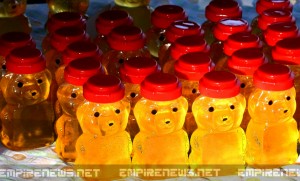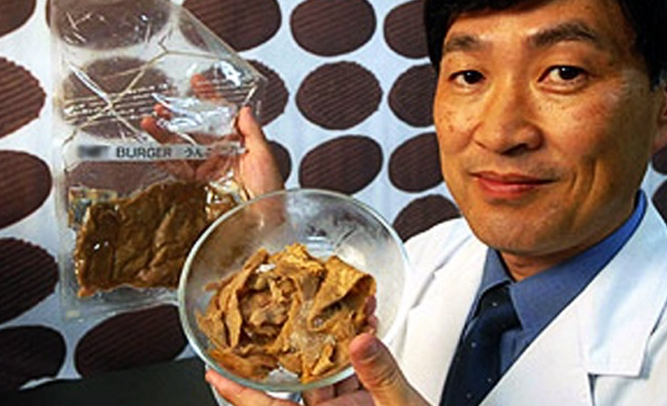WASHINGTON, D.C. – 
The Food and Drug Administration issued an immediate recall for a large shipment of honey imported from Mainland China that claims to contain ‘100% pure, delicious and natural honey,’ but is actually a mixture of high fructose corn syrup, petroleum-based solvents, resin, and artificial coloring and flavorings.
Marketed under the brand Tasty Swarm Honey, the product is said to cause immediate stomach distress and discomfort, with several people who’ve sampled the product saying they instantly felt sick. At least one person was hospitalized with food poisoning after consuming the honey.
Adding sweeteners to honey is an FDA-approved manufacturing process. Any honey product that is not labeled ‘100% Pure’ is allowed to contain additives, sweeteners, and extenders. Due to questions concerning possible adverse health effects, high fructose corn syrup, or HFCS, has come under increased scrutiny and examination over the years. Derived from converted cornstarch and cheaper to produce than refined sugar, it has dominated the worldwide sweetener market in recent years.
“With this particular product, it’s not a question of the quantity or quality of the artificial ingredients that were added,” said FDA Quality Control Officer Barbara Temple, “because the entire composition is artificial. There’s absolutely no nutritional value whatsoever. Consuming this product could result in severe illness. In fact, there’s no way anyone could have possibly eaten this without having gotten violently ill. You’d be better off literally eating granulated sugar straight out of the bag by the spoon full.”
A routine FDA inquiry examining purity and quality standards of imported food items prompted an investigation and detailed analysis into the manufacturer’s products and practices.
“Recently,” said Temple, “we were informed that the Tasty Swarm company also manufactures epoxy, bathroom grout, industrial lubricants, glue, nail polish remover, and fabric softener, so our inspections were significantly stepped up after that discovery. We actually used their honey to repair a broken ceramic tile in our company bathroom, and it’s holding on strong. I wouldn’t advise eating it, or adding it to your morning tea.”
“Curiously, the company also manufactures cheese and canned soup,” continued Temple. “When we tested those products for contaminants, they were found to be top-notch – and completely delicious. It’s just this honey that they’re really getting wrong. It’s a sticky mess for Tasty Swarm, that’s for sure.”
“I ate most of the jar before I really started feeling sick,” said Joe Goldsmith, who was hospitalized with symptoms of food poisoning after eating Tasty Swarm. “I like to take honey and just pour it into a glass and sort of slurp it down with a straw. I got the honey at a local closeout discount store, but it was still in date, so I figured it would be okay. Actually, now that I think about it, the date said it didn’t expire until sometime in 2035.”
Retail store chains recalling the product from shelves include Albertson’s, Big M, Food City, and Publix. Tasty Swarm could not be reached for further comment, but a statement from a company representative said they would be “really surprised” if there were any problems with the honey, and that even Winnie The Pooh himself would be ecstatic to get stuck in a jar of their product.



































